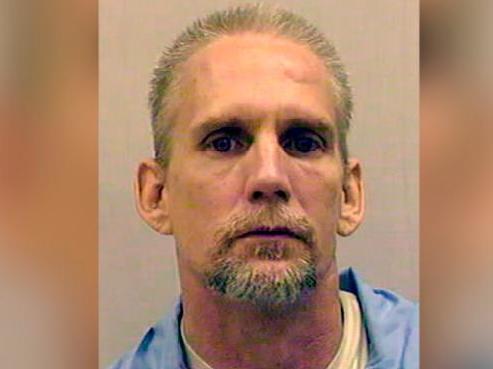US executes second man this week after lawyers argued dementia made him mentally unfit
A Supreme Court ruling on Thursday blocked an injunction that prevented Wesley Ira Purkey’s execution

The United States has carried out its second federal execution this week by putting to death a Kansas man who lawyers argued was mentally unfit for lethal injection.
Wesley Ira Purkey was executed by lethal injection on Thursday at the federal correctional complex in Terre Haute, Indiana.
Purkey was sentenced to death in 2004 after he was convicted in federal court of kidnapping and killing a 16-year-old girl before dismembering, burning, and dumping her body in a pond.
“I deeply regret the pain and suffering I caused to Jennifer’s family,” Purkey said before his execution. “I am deeply sorry. I deeply regret the pain I caused to my daughter, who I love so very much. This sanitised murder really does not serve no purpose whatsoever.”
The execution came after the Supreme Court ruled in a 5-4 decision that the government could lift an injunction which blocked putting Purkey to death.
US district judge Tanya Chutkan issued an injunction on Wednesday prohibiting the Federal Bureau of Prisons from executing Purkey over concerns he was not mentally fit.
The judge ruled that Purkey suffered from progressive dementia, schizophrenia, and severe mental illness, and ordered the court to further evaluate his mental stability. She did not rule whether he was mentally fit or not to stand execution.
The Supreme Court lifted the injunction, however, allowing the government to carry out the execution just after 8am EST.
The four liberal justices dissented against the majority opinion of the conservatives within the Supreme Court.
In the dissent, Justice Sonia Sotomayor wrote that “proceeding with Purkey’s execution now, despite the grave questions and factual findings regarding his mental competency, casts a shroud of constitutional doubt over the most irrevocable of injuries”.
It was the federal government’s second execution this week after a 17-year hiatus.
Daniel Lewis Lee, a one-time white supremacist who killed a family of three, was executed on Tuesday. His execution was carried out after the Supreme Court made an overnight decision allowing the federal government to proceed.
The Justice Department has faced criticism for restarting federal executions after a long hiatus, specifically during the coronavirus pandemic.
The American Civil Liberties Union (ACLU) called the renewal of federal executions “a truly dark period for our country” and criticised the department for executing Purkey while his lawyers were calling for a competency hearing.
“There was no reason for this administration to restart federal executions now – after a nearly two-decade hiatus, during the worst public health crisis of our lifetime – except to distract from its many failings, particularly its failure to keep people safe during this pandemic,” said Cassandra Stubbs, director of the ACLU’s Capital Punishment Project.
Purkey’s lawyers argued that a competency hearing was required because Purkey’s mental situation had deteriorated to the point where he did not have a “rational understanding” as to why the government was executing him. Executing Purkey, the lawyers added, would be unconstitutional given his mental state.
His attorney, Rebecca Woodman, said: “Though he has long accepted responsibility for his crime, he no longer has a rational understanding of why the government plans to execute him.”
Join our commenting forum
Join thought-provoking conversations, follow other Independent readers and see their replies
Comments
Bookmark popover
Removed from bookmarks